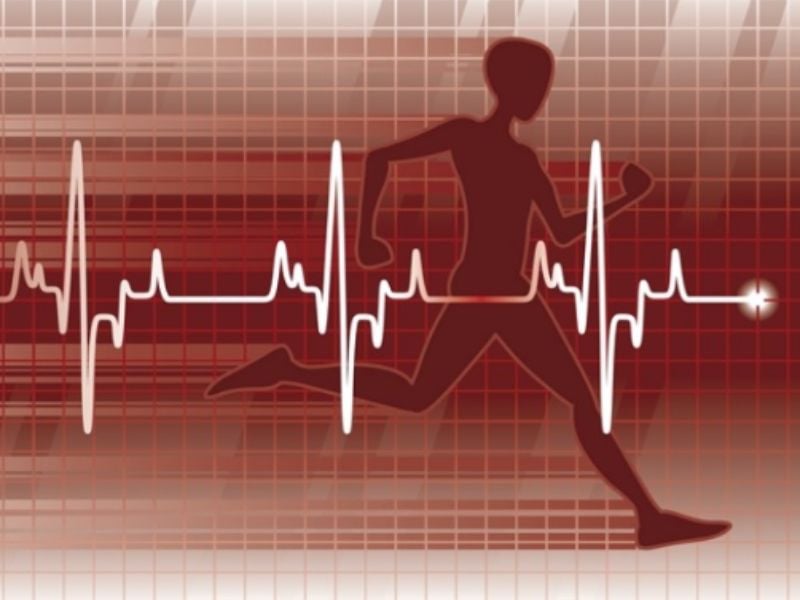According to Dr. Hoang Xuan, a Cardiovascular and Thoracic Surgery specialist in Taiwan (China), sudden death during exercise is much more common than most people think. He provided evidence from a study conducted in Taiwan (China) that showed there are 3 sports that are prone to causing sudden death. They include: running with 33.98%, soccer with 10.68%, and basketball with 8.64%.
Therefore, long-distance running, especially marathons or half marathons, has the highest mortality rate, while being the most popular sport for people of all ages.
Since 2012, the New England Journal of Medicine has also published an analysis of the number of deaths in full or half marathons in the United States from 2000 to 2010, which surprised many people. Note that the distance of a full marathon is 42.195km and a half marathon is 21.0975km.
The results of the report showed that out of a total of 10.9 million runners, 59 people experienced sudden cardiac arrest, with a general incidence rate of about 1 in 200,000. Out of those, 42 people died, resulting in a mortality rate of 70%. The average age of these cases was 42, 86% (51) were male, and the incidence of diseases was 5.6 times higher in men than in women.

Illustration
Dr. Hoang Xuan also noted that this does not necessarily mean that only long-distance running can cause sudden death. You can also experience cardiovascular disorders, even sudden death, while running short distances. This is especially true if you train improperly, in extreme weather conditions, or if you have underlying diseases (the most common being cardiovascular diseases).
Main reasons for sudden death during running
Speaking of why sudden death occurs during running, Dr. Hoang Xuan also pointed out the two most common factors.
Dehydration and electrolyte imbalance:
He explained that the human body loses a lot of water and electrolytes when running, especially at high intensity. If not replenished in a timely manner, this can lead to a lack of important electrolytes such as calcium, magnesium, sodium, potassium, phosphorus, etc. On the other hand, drinking too little water can cause thickening of the blood, increased blood sodium levels, and potassium deficiency due to excessive sweating. In cases of excessive high-intensity exercise, this can lead to muscle damage and increased blood potassium levels.
Functionally speaking, sodium helps balance the fluid level in the body, stabilize blood pressure, and support the nervous system and muscles. Potassium plays a role in supporting the function of the heart, nerves, muscles, and transporting nutrients into cells, supporting metabolic processes. Calcium helps the heart contract and blood vessels relax to stabilize blood pressure, and magnesium stabilizes cell membrane electrical activity, improves nerve function, and muscle function.
Depending on the type of electrolyte deficiency or excess, different abnormalities can occur. For example, severe high blood potassium levels can slow down the heart rate and cause cardiac arrest or dangerous arrhythmias. Or a deficiency of magnesium in the blood can cause arrhythmias in the form of “twisting peaks,” causing blood pressure to drop and cardiac arrest.
Cardiovascular or cerebral diseases:
Dr. Hoang Xuan emphasized that those who experience sudden death while running, especially young people, often have underlying cardiovascular and cerebrovascular diseases, especially congenital heart diseases. These include structural abnormalities of the heart, abnormal heart valves, abnormal heart muscles, etc.

People with coronary artery disease, when running, push their hearts to overwork, leading to heart rhythm disorders, causing a recurrence of the disease and resulting in sudden death. Or runners may have undiagnosed cardiovascular or cerebrovascular diseases that they themselves are unaware of. This factor is common in young people who die.
In addition, cardiovascular and cerebrovascular health can also be affected by running in certain weather conditions, also known as thermal shock. For example, excessively low temperatures can cause blood vessels to contract, causing impaired blood flow, arrhythmias, and cardiac arrest, cerebral infarction. There are also cases of heat shock while running, that is, disorder of body temperature due to excessive heat, which can lead to death if not promptly treated.
Or excessive accumulation of lactic acid during running can also cause sudden death. To explain further, Dr. Hoang Xuan said that when running, muscle oxygen deficiency can occur, requiring the use of glucose reserves from cells to supply energy, resulting in the production of harmful byproducts, including lactic acid. The more lactic acid accumulates, the more it causes sensations of heat, muscle fatigue, cramps, and muscle spasms. Lactic acid also inhibits the cardiac nervous system, slowing down the heart rate, and can cause cardiac arrest.
Some people may also have anatomical abnormalities or chronic yet untreated cerebrovascular malformations. During intense exercise, prolonged sympathetic reflex can cause vasospasm, increased blood pressure, cerebral vessel contraction, rupture of weak points (aneurysms) in cerebral blood vessels, or overload of the body, leading to unexpected events and sudden death.
3 warning signs of the risk of sudden death while running

Cardiovascular disease is the most common cause of sudden death while running (Illustration)
- Extreme thirst. It is often so severe that your tongue sticks to your lips, your throat becomes dry and hot or slightly sore.
- A feeling of heaviness and lack of alertness in your head. You may feel lightheaded or overexcited when running, or even dizzy or disoriented.
- Rapid and irregular heartbeats. When running, your heart rate will increase, but you should stop immediately if you feel that your heart is beating uncontrollably, your heartbeat is skipping, or you feel your heart pounding abnormally and uncomfortably in your chest, accompanied by chest pain and possibly shortness of breath.
- Regular health check-ups, especially if you have congenital cardiovascular diseases or a family history of heart, cerebrovascular – cardiovascular diseases.
- Proper and appropriate training according to your physical condition and weather conditions.
- A balanced and nutritious diet. Do not run after eating or drink stimulating beverages such as coffee, alcohol, etc.
- Drink enough water and drink water properly.
- Proper rest, especially if there are any abnormalities while running, stop and seek the assistance of a specialist.


































